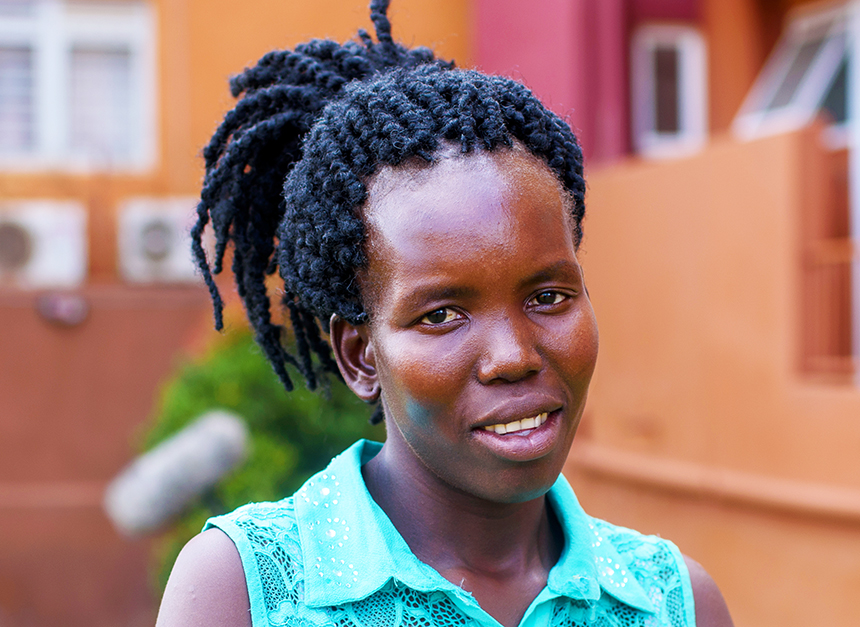From where I stand, Ayoo Janet: "The number of women peace mediators is still limited and this hinders the amplifying of women’s voices in peace building processes"
Ayoo Janet, aged 28 years is a mother of 3 girls who has lived in Maaji III Refugee Settlement in Adjumani district since July 2016 after fleeing her home in South Sudan due to conflict. Ayo who is the Secretary for Women Peace Mediators in Maaji III refugee settlement, shared her experience and what it means for a refugee woman to be a Peace Mediator.Date:

![]() Peace means many things for me. Peace means harmonious living, no fighting and gunshots, having the freedom to move freely and as a refugee woman, I have peace when I have access to food.
Peace means many things for me. Peace means harmonious living, no fighting and gunshots, having the freedom to move freely and as a refugee woman, I have peace when I have access to food.
Women are the source of peace. If there is a conflict and a woman takes part in mediation, the conflict stops. Women peacebuilders have the unique power to unite people. I strongly believe that Peace is possible when women lead.
As a peace mediator, when a conflict erupts in the community my duty is to ensure that it does not escalate into violence and that it is amicably resolved. In May 2020 when fighting erupted in Maaji III amongst the Dinka and Nuer youths, as a peace mediator I reached out to the Settlement leadership and armed security was deployed because the fighting had escalated and could only be calmed by uniformed peacekeepers at that moment. In such a situation, as Women peace mediators, we ensured that the most vulnerable especially children and pregnant women in the community are safe and protected, even if it means hiding them for days until the situation returns to normalcy.
The biggest challenge we face as women peace mediators is that men don’t want to listen to us during mediation. Men perceive women as having no voice in peace and security activities and with the dismal number of women involved in peace processes, this limits us from amplifying our voice as women in peace processes. Although peace actors like UN Women and Women International Peace Centre have put effort into training women to be involved in peacebuilding and conflict resolution, the number of women peacebuilders is still very small. There are 38 women peacebuilders in the entire district of Adjumani covering all the five refugee settlements. For instance, Maaji Refugee Settlement is quite big (there is Maaji I, Maaji II and Maaji III), but we are only 15 women peacebuilders, making it challenging to respond to distress community calls or be able to reach out to all communities and raise awareness on peaceful coexistence. As women peacebuilders, we are challenged even more with lack of transport to cover such a vast area.
To increase women participation in peacebuilding initiatives, more women have to be empowered with skills in peacebuilding, mediation and negotiation. There are still many people who don’t know anything about peacebuilding and they need to be reached with information.
In 2019, UN Women with support from the Embassy of Norway began a partnership with Women International Peace Centre to implement a project titled “Promoting Women’s Effective Participation in Peace Building in Uganda”. Through this project, the capacity of 156 women peace mediators from Kotido, Yumbe and Adjumani refugee and host communities has been strengthened, enabling them to participate more effectively in peacebuilding processes in their communities.